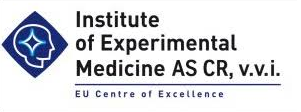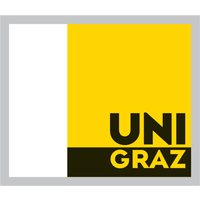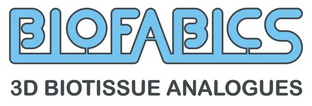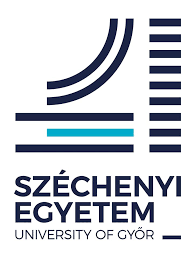Consortium at Glance
acti-TOX project goals will be achieved by a consortium of 4 SMEs and 7 academic institutions.

Academic Partners:
- Fraunhofer IBMT – Fraunhofer Institute for Biomedical Engineering (coordinator) (Germany);
- IEM – Institute of Experimental Medicine, Academy of Sciences of the Czech Republic (Czech Republic);
- SZECH – Széchenyi István University (Hungary);
- TUW – Vienna University of Technology (Austria);
- GRAZ – University of Graz (Austria);
- Bioneer a/k (Denmark);
SME Partners
- InoCure s.r.o. (Czech Republic)
- OSPIN GmbH (Germany)
- Biofabics lda (Portugal)
- OrthoSera GmbH (Austria)
Expertise

The Fraunhofer-Society is Europe’s largest non-profit research organization for applied research. The Fraunhofer Institute for Biomedical Engineering IBMT is offering solutions for individual tasks in the areas of e.g. (bio-) medical engineering, molecular and cellular biotechnology, cryo(bio)- and nano(bio)technology as well as stem cell technology and toxicology. The institute promotes the technology transfer to medicine and various areas of industry. The expertise in microfluidics and microsensors is combined with the long-term experience in in vitro and ex vivo models to design new biosensors for applications in nano- and bio-sciences. A second focus is on applications of these in vitro models in the areas of medical diagnosis, therapy and therapy control.
Lead Researcher
Dr. rer. nat. Yvonne Kohl’s nanotoxicology group at Fraunhofer Institute for Biomedical Engineering is focused on nanotoxicology, biological barriers, in particular
intestine and lung barrier, advanced chip-based assays, barrier models, miniaturized in vitro models for single cell analysis, nanoparticle-cell interactions, hepatotoxicity, REACH and regulatory aspects.
Role in actiTOX
IBMT is the coordinator of the project. At IBMT, researchers will be involved in the development of the hiPSC based lung models using the advanced scaffolds provided by InoCure. IBMT will also receive the final microfuidic setup and bioreactor for nanotoxicology testing.

InoCure s.r.o. is an R&D performing SME focused on the development of high-throughput electrospinning and electrospraying devices for biomedical applications. InoCure is also actively involved in the development of drug delivery systems and biomimetic scaffolds for tissue engineering applications. InoCure markets multiple electrospinning devices (lab-scale unit, production lines, custom-made devices) as well as scaffolds for 3D cell culture and fibrous filters for respirators and medical masks. InoCure also offers a contract development for electrospun membranes and encapsulation.
Lead Researcher
Matej Buzgo, has more than 10-year experience in development of advanced membranes and drug delivery systems using electrospinning and electro-spraying. Matej Buzgo studied cell biology at Charles University in Prague and spent most of his research career at the Institute of Experimental Medicine, Czech Technical University and Charles University in Prague. His research activities were focused on the nanomaterials preparation for in vitro and in vivo (e.g. tissue engineering) cell cultures. Matej Buzgo is a renowned expert in the development of needleless electrospinning devices and preparation of core/shell nanofibers for drug delivery of proteins and small molecules. Matej Buzgo is an author of more than 50 research publications in high-impact journals (H-index: 17), has written two book chapters, and holds eight national patents on scaffold production whereof one European patent.
Role in actiTOX
InoCure will assist the coordinator with the project and scientific management of the project. At InoCure researchers will be trained on using the high-throughput electrospinning devices and will active contribute on the development of active growth-factor releasing scaffolds for organotypic modes: skin, intestine, lung and liver. Researchers will also work on developing particle-based drug delivery systems.

Institute of Experimental Medicine (IEM) of the Czech Academy of Sciences is focused on research in areas of regenerative medicine, cell biology, development of drug delivery systems and development of scaffolds for regeneration of soft and hard tissues (e.g. skin, abdominal incision, cartilage, bone, tendons). Scaffolds are based on mainly biodegradable polymers prepared as gels, foams and nanofibres as well as on bone implants. The novel materials are firstly being tested for biocompatibility in vitro, and moreover, tissue regeneration is evaluated on animal models including mice, rats, rabbits, minipigs or pigs.
Lead Researcher
The Head of the Department of Tissue Engineering. Expert in regeneration of osteochondral defects based on hydrogels and nanofibres. Eva Filová studied farmacy at Comenius University in Bratislava. His research career was performed at Institute of Biophysics, Charles University in Prague and at the Institute of Experimental Medicine of the Czech Academy of Sciences in Prague, and Czech Technical University in Prague. She participated as team member in the FP7 project BIOSCENT, ERANET project CARSILA, and numerous of other
Czech projects focused on tissue engineering and nanofiber production. She focuses her research for cell culture, biocompatibility testing, immunohistochemistry, confocal microscopy, development of scaffold for cartilage and osteochondral regeneration, bone regeneration. Eva Filová is an author of 21 research publications in international journals (H-index 13), 1 book chapter, 1 University textbook, and holds 4 national patents about scaffold production and 6 utility models.
Role in actiTOX
At IEM, researchers will focus on testing scaffolds for skin models.

The University of Graz, which was founded in 1585, is an international institution for education and research committed to research and teaching for the benefit of society. Basic and applied research is the foundation of scientific and ethical integrity. The University of Graz fosters the topical and methodological variety within an international cooperation network to provide innovative and interdisciplinary research and cooperation. The Institute of Pharmaceutical Sciences is based on cellular stress and tissue dysfunction, which in detail involves cardiovascular stress and cytoprotective drugs, anti-infective and anti-inflammatory drugs, anti-cancer drugs and pharmaceutical micro- and nanotechnology. The main area of expertise at the department of Pharmaceutical Technology and Biopharmacy is 1) the development of pharmaceutical preparations for new drug candidates based on new approaches of pharmaceutical nanotechnology and 2) basic research on penetration and permeation, uptake mechanisms and identification of possible negative effects of nanoparticles in the human body (oro-gastro-intestinal models).
Lead Researcher
Senior Scientist/Expert Prof. Dr. Eva Roblegg is a pharmaceutical scientist. In 2006 she started as senior scientist at the Institute of Pharmaceutical Sciences, Department of Pharmaceutical Technology in Graz and is Assistant Professor since 2011. 2012 she spent 6 months as guest scientist at the University Saarland (Department Biopharmaceutics and Pharmaceutical Technology/Helmholtz Institute for Pharmaceutical Research Saarland (Drug Delivery Department), Germany and habilitated in 2014. The main focus of her research is exploring biological barriers, in particular the oral cavity and the small intestine. In parallel, she is interested in finding a multifunctional delivery system for the gastro-intestinal tract. To design such systems, biomimetic models are necessary so that the mechanisms and/or interactions of interest can readily be studied. The group developed an advanced in-vitro and ex-vivo permeability model of the small intestine to demonstrate that the barrier impacts the mobility and diffusion velocity of nanoparticles. Moreover, it was shown that physicochemical properties such as size, surface charge and hydrophilicity strongly determine the penetration, transport mechanisms involved and cytotoxic effects. Eva Roblegg has received grant support from national (e.g., FFG) and international funding agencies (e.g., EU, OECD) and industry. She has more than 75 peer-reviewed articles (h-index = 24) and she has (co)supervised 6 finished PhD thesis; 4 PhD thesis are currently ongoing.
Role in actiTOX
At GRAZ, researchers will focus on testing scaffolds for intestin models.
Bioneer A/S is an innovative research-based non-for profit organization and an authorised provider of services with biomedicine and biotechnology. Bioneer has worked extensively on the development and implementation of technologies within in vitro model systems and supporting analytical platforms within molecular biology, biochemical assays and toxicity assays. Bioneer has developed and implemented iPSC platforms and gene editing technology platforms and a variety of differentiation protocols, including pancreatic and neuronal differentiation protocols.
Lead Researcher
The lead scientistat Bioneer, Dr. Bjørn Holst, has more than 15 years’ experience in in vitro modelling platforms, including iPSCs. In addition, Dr. Mikkel Rasmussen has more than 10 years’ experience in culture, differentiation and gene editing of iPSC.
Role in actiTOX
At Bioneer, researchers will work on the development of iPSC differentiation protocols on the novel electrospun scaffolds for organotypic hepatic models.

OrthoSera is a regenerative medicine company harnessing the power of blood serum for human diseases. Orthosera combines the outstanding know-how in cell therapies with the expertise in growth factor research for the development of innovative orthobiologics. OrthoSera’s R&D is currently focused on bone grafting, osteoarthritis, wound healing, as well as dental and orthopedic indications. Blood serum has a high regenerative potential, and based on this fact OrthoSera has already developed two technologies. BoneAlbumin is essentially a serum albumin enhanced bone allograft that was shown to activate bone marrow stem cells leading to faster and better bone healing. This tissue product is already in commercial stage with two double-blind clinical studies proving its effectiveness. BoneAlbumin is marketed through our subsidiary OrthoSera Dental Kft. in dental indications. Our next technology takes this concept even further, as we use a proprietary method to isolate a specific, growth-factor rich serum fraction (SPRF) that has shown superior effects in promoting cell proliferation in osteoarthritic bone and cartilage cells.
Lead Researcher
The lead scientist dr. Olga Kuten is an expert in regenerative medicine. Her work as R&D Manager in OrthoSera focused on the regenerative capacity of blood-derived products in biological systems, with a firm interest in serum from platelet-rich plasma and hyperacute serum in the context of cartilage and bone repair.
Role in actiTOX
At OrthoSera, researchers will test the scaffolds and particles with encapsulated sera and growth factors and will assist with the optimization of sera subfractions and will compare their efficacy on the cell culture of bone and cartilage.

The Vienna University of Technology (TUW) is Austria’s largest engineering school and consists of eight faculties. Founded in 1815, it is home to approximately 30.000 students and 3.300 academic employees and offers 18 Bachelor, 31 Masters, and 3 doctoral programmes. TUW grants degrees in mathematics, physics, chemistry, and computer science among others and former graduates of TUW include Christian Doppler, Viktor Kaplan, Joseph Loschmidt, Otto Wagner, and Richard Zsigmondy (Nobel Prize in chemistry). The Institute of Chemical Technologies and Analytics is located within the Faculty of Chemistry and is further organised into five divisions that bridge different matters in Chemistry, Technology, Materials Science, Instrumental Analytical Chemistry, Bioanalytics, Electrochemistry and Environmental Chemistry. One scientific focus of the institute is development of analytical strategies and instrumentation including (bio)sensors, Omics-techniques, mass spectrometry, imaging techniques, ultra-trace separation and detection techniques on the elemental as well as molecular level. The latest initiative of the Faculty of Technical Chemistry is the establishment of a lab on a chip laboratory for bioscience technologies that combines aspects of microfluidics, material sciences, biosensing technologies and cell biology.
Lead Researcher
Prof. Ertl’s microfluidics, diagnostics and cell culture laboratories are found within the Institutes of Chemical Technologies and Analytics as well as Applied Synthetic Chemistry. Dr. Ertl’s microfluidics laboratory is equipped for rapid prototyping based on micromachining, lithography, soft- and hard polymer replication techniques such as casting, hot embossing and micro-injection molding for fabrication of microdevices and microfluidic components development including valves, mixers and gradient generators as well as quality control measures. A separate room dedicated for chip fabrication and back-end processing containing a drilling machine, heaters, hot-embosser for rapid prototyping, casting for replica moulding, microscopes and various electronics equipment is used to assemble and test biochips while optical lithography and microsensor fabrication is conducted at the TUW clean room facilities. Dr Ertl’s diagnostic lab contains eight lab-on-a-chip platforms with different optical and electroanalytical detection systems. Dr Ertl’s cell culture laboratory is equipped with necessary instrumentation including laminar flow hood, microscope and incubators to maintain, culture and analyses mammalian cell cultures (biohazard I).
Role in actiTOX
In course of the project, researchers and secondees at TUW will contribute to rapid prototyping technologies, microfluidics, CFD simulations and optical and electrical biosensing systems as well as bio-functionalization strategies to develop (portable) multifunctional lab-on-a-chip systems.

BIOFABICS LDA is an R&D startup company specialized in 3D Biotissue Analogues. In particular, BIOFABICS LDA develops: 1 – Tailor-Made Implants and Bioreactors for research and implantation; 2 – Body-Like Environments for study of cells and tissues in in vivo-like states; 3 – Customizable, Truly 3D Organ-on-Chip Devices for drug discovery and personalized diagnostic/treatment. The current main activity of BIOFABICS LDA is to provide R&D services to companies and labs around the world who are looking to employ novel, more accurate, and more reliable tissue/organ models in their own research activities.
Lead Researcher
The lead scientist in iP-Osteo project, dr. Pedro Costa is an expert in biofabrication, microfluidics, Organs-on-Chip technologies, bioreactor Technologies, tissue Engineering & regenerative medicine.
Role in actiTOX
At BIOFABICS, researchers will develop customizable 3D printed devices for automated testing of the scaffold-based tissue models.

OSPIN is a young company with the mission to automate and scale up the production of artificial biological tissues and organs to industrial dimensions. OSPIN is developing automated and scalable technologies increasing throughput in research and forming the base for successful commercialization of tissue engineered products. OSPIN’s modular bioprocessing platform supports cultivation of different tissue models representing a flexible foundation for countless applications. Through an intuitive user interface arbitrary automated production processes can be defined. The compact, integrated and stackable bioreactor systems are independent of incubators and save valuable lab space. Automation and ease-of-use significantly reduce technical complexity in tissue engineering thus enabling users to focus on their biological and medical expertise.
Lead Researcher
The lead scientist in iP-Osteo project, Dr. Jordi Morales-Dalmau is an expert in nanomedicine and photonics, with years of experience working and coordinating multi-disciplinary research and industrial projects.
Role in actiTOX
At OSPIN, researchers will help on the design and development of bioreactor and tissue chambers for the organotypic models, and automation of multi-step bioprocesses. Specifically, researchers will work on multi-chamber bioreactors for testing hepatic models.

Department of Materials Science and Technology belongs to the Audi Hungaria Faculty at the Szechenyi Istvan University (SZECH). The department is an expert in computer modelling, 3D printing, computer tomography, nanoparticle synthesis and modelling of different particle interactions.
Lead Researcher
The lead scientist prof. Ibolya Zsoldos, is an expert in modelling and simulations of nanostructures and 3D techniques.
Role in actiTOX
The lead scientist prof. Ibolya Zsoldos, is an expert in modelling and simulations of nanostructures and 3D techniques.

H2020-MSCA-RISE-2019
actiTOX receives funding from the European Union’s H2020 program under Marie Sklodowska-Curie grant agreement No. 823981